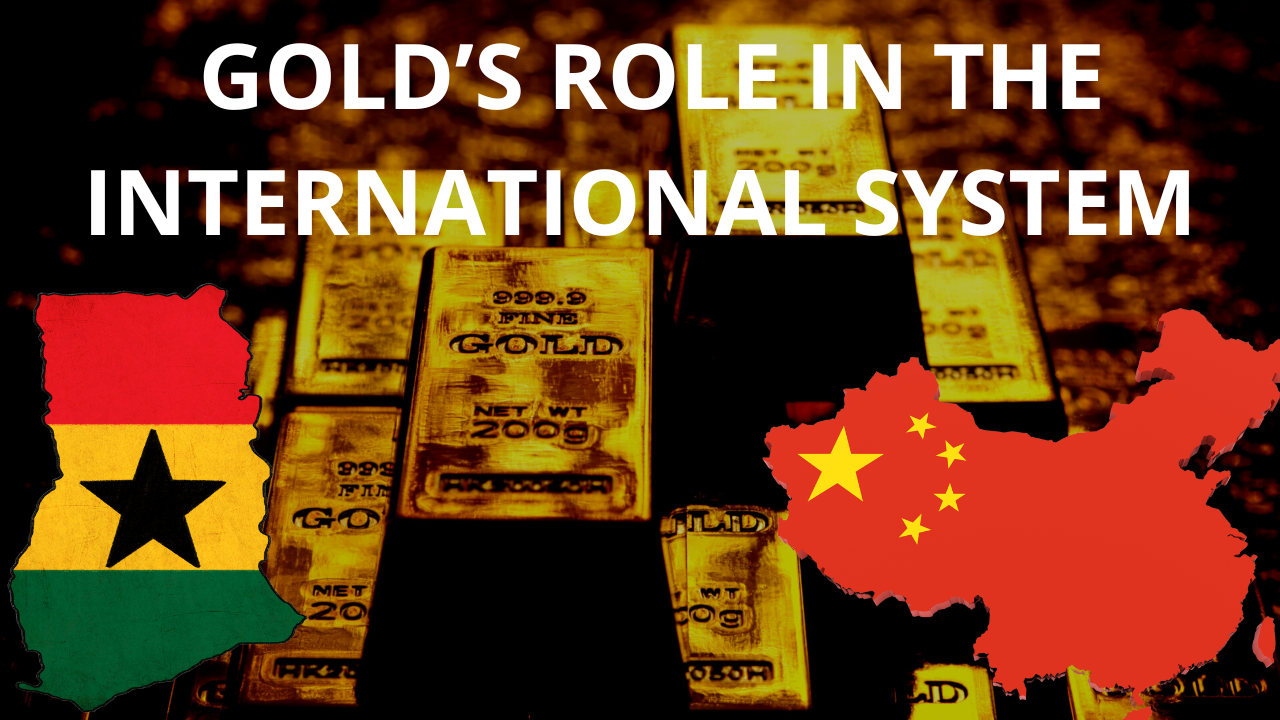
Investors choose to invest in gold bars and buy silver bars because there is no counterparty risk. In a world where money is devalued every second and governments are scrambling to stay afloat, it’s worth holding some assets outside of the increasingly tenuous financial system. Below, we look at two countries who couldn’t agree more.
Countries own gold for many of the same reasons that investors do… mainly because gold is not a liability of any other country, and it alleviates counterparty risk. For more see our podcast post from September 13 “What Problem Does Gold Solve?
The desire of countries to have less reliance on the US dollar for international trade is a subject that we have discussed often.
Over the years there have been many attempts to ‘de-dollarize’ – one of the most recent was the new currency proposal to rival the US dollar put forward by Russia, Brazil, India, China, and South Africa.
This was proposed around the same time in August as Russia’s proposal to create a new international standard for trading precious metals. See our August 25 post The Russian Gold Standard.
But the conversation to de-dollarization always comes back to gold’s role in the international system. As stated above countries turn to gold for the same reasons that investors do because it is not the liability of any other country.
Ghana, gold and oil
Two countries in the news this week are likely to rely heavily on gold in the coming year. The first is the explicitly announced plan of gold for fuel announced by Ghana.
The second is China, as lockdown protests escalate, the CCP government is likely to act with force. In a fashion that brings displeasure and possibly sanctions levied by western nations against China.
Ghana is the latest to announce a long-term plan to pay for energy imports without the US dollar. Instead, its plan is to trade directly in gold.
“Ghana’s government is planning a new policy where gold rather than U.S. dollar reserves will be used to buy oil products.
The move is meant to tackle dwindling foreign currency reserves coupled with demand for dollars by oil importers, which is weakening the local cedi and increasing living costs” (Reuters, 11/25).
Ghana requested a loan from the IMF in July to help reduce the extreme economic hardship the country has faced.
Extreme inflation (40%+ in October), climbing public debt, and a declining local currency (one of the worst performing currencies, down more than 50% this year). Moreover, plus protests and businesses closing their doors are all wreaking havoc on the country’s finances.
Ghana has a long history of loans and bailouts from the IMF dating back to the 1960s. The IMF requires a slew of meetings and promises from the country before agreeing to any loan.
As part of the new gold for barter initiative Ghana, the largest gold producer in Africa, has ordered miners to sell 20% of their refined gold to the central bank starting January 1, 2023. (Ghana announced its first Domestic Gold Purchase Programme in July of 2021 aimed at doubling the country’s gold reserves.)
The idea is that the government will buy the gold from miners at a set spot price, they can then buy fuel with gold instead of US dollars.
The goal of the initiative is to tame inflation and stop the step devaluation of the Ghana Cedi. It will also help increase the dwindling foreign exchange reserves and shore up the country’s balance of payments account.
Protests in China
Turning to China, large protests in major cities over recent days against China’s zero-Covid policy and severe lockdowns pose a real challenge to the communist party.
The protests started in Urumqi after barriers were put in place because of the zero-Covid policy they blame for the deaths of 10 people due to delayed rescue efforts to put out a fire.
The protests have since spread to other major cities. This inludes Beijing and Shanghai, with demonstrators using the opportunity to call for political change.
Although small local protests are common in China. Government censors are working to ensure they stay under the radar of the media and are unreported. Mass protests are not common, and the government reacts quickly to stop them.
This week’s protests are not an exception. Moreover, in Beijing and Shanghai large numbers of police were deployed to head off protestors.
China has one of the most sophisticated censor systems, and police often check phones for foreign social media apps such as Instagram and Twitter. Also, use cameras in public places to detain protestors later. Censors also scrub any mention of the protests or dissent about the zero-Covid policy from the internet.
The Western World is watching the Chinese government’s response to the protests very closely. A spokesman for US President Biden told reporters that the President is monitoring the situation. Also, said that people around the world should have the right to protest peacefully including in China.
Moreover, Canada’s Prime Minister Justin Trudeau has expressed a similar sentiment.
The protests and the Chinese government’s reaction are likely to increase already tense relationships with China and the West. The recent confrontation between Xi and Trudeau at the G20 summit in mid-November over Xi saying that Trudeau leaked information from their private informal meeting is just the latest example.
Xi did not think it appropriate that Trudeau had told the press that he brought up “serious concerns about alleged espionage and Chinese interference in Canadian elections”. The recorded confrontation is just one example that China does not see reason to commit to open communication and rules of the Western world.
Gold gives China confidence
The US and its international allies have announced sanctions against China for human rights violations as recently as last year. This is when they announced sanctions against government officials for their treatment of Muslims.
If the West does put sanctions on China for its response to protestors, China will likely retaliate with sanctions against the US. This could turn into a full-on trade war.
China’s long bid to ‘de-dollarize’ and its building of gold holdings will certainly help China. This will help them to mitigate the negative effect of sanctions for longer.
The 2022 playbook for de-dollarizing before committing acts which will earn the sanction of America was written by Russia who owned plenty of exportable commodities before invading Ukraine.
China learnt from the sanctions against Russia that America and other nations would seize assets and deny access for money transfers.
Therefore, holding gold makes sense since it can act as collateral in transactions that never pass through the western banking system controlled by America.
Whatever your views about China and its policies, the fact remains that their gold holdings serve as insulation from sanctions. This is because physical metal has zero counterparty risk.
It does this job for everyone that owns it. Maybe this is why America itself has not sold any gold since 1971.
Buy Gold Coins

GOLD PRICES (USD, GBP & EUR – AM/ PM LBMA Fix)
30-11-2022 1759.65 1753.50 1465.08 1462.77 1697.53 1689.67
29-11-2022 1755.35 1752.70 1460.63 1462.98 1691.63 1693.81
28-11-2022 1762.90 1746.55 1456.86 1449.46 1683.22 1674.77
25-11-2022 1753.55 1751.85 1447.20 1450.01 1683.06 1687.73
24-11-2022 1755.25 1755.40 1451.42 1446.80 1688.73 1685.54
23-11-2022 1735.75 1740.15 1457.51 1447.98 1685.24 1679.24
22-11-2022 1747.00 1742.95 1473.59 1467.74 1698.78 1696.76
21-11-2022 1739.65 1740.40 1474.01 1471.86 1699.64 1696.02
18-11-2022 1764.75 1751.60 1481.15 1473.27 1702.63 1694.85
Buy gold coins and bars and store them in the safest vaults in Switzerland, London or Singapore with GoldCore.
Learn why Switzerland remains a safe-haven jurisdiction for owning precious metals. Access Our Most Popular Guide, the Essential Guide to Storing Gold in Switzerland here


